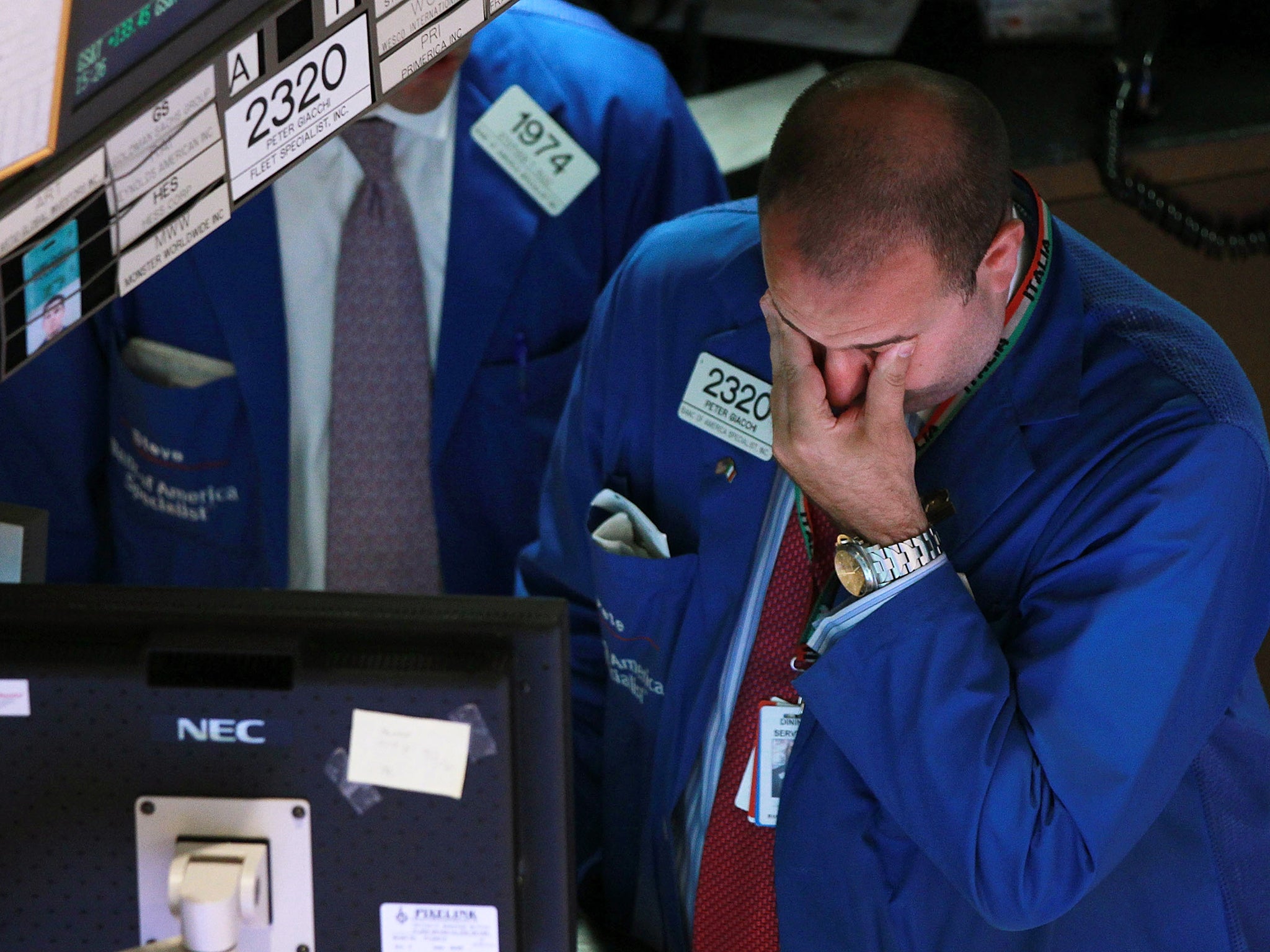Recession is old hat. Nowadays it’s all about panic
But, like all things, bear markets must pass, whereas low interest rates may be with us for quite a while

The P-word, panic, is now appearing alongside the R-word, recession. You don’t have to be a close follower of financial markets to be aware that the wobbles of January have become something more serious. Most developed economies are not doing too badly, though much of Europe continues to disappoint, and though China maybe slowing, India is racing ahead.
But that is not the message of the markets. Not only have the main share indices plunged, but almost more alarming, the yields on government bonds have gone down to exceptionally low levels. The yield on a 10-year UK gilt went to 1.3 per cent last week. That is the lowest such securities have ever been. Yes, ever. Our government can borrow more cheaply than at any stage during the past 300 years. If that sounds welcome, try it the other way round. The return savers can get from the government is the lowest for 300 years. Why?
Stripped bare, the answer must be that the markets do not believe that the central banks will succeed in their aim to push inflation back towards 2 per cent. Otherwise, why would you accept a negative real return on your money? But I think there is something deeper here, which is that people are losing their faith in the policy of ultra-easy money that the central banks of the developed world have followed for the past seven years.
The pattern varies from country to country. The US Federal Reserve has started to move back to more normal policies, but its chair Janet Yellen has now been criticised for that first increase in rates last December. Here, the forward guidance from Mark Carney at the Bank of England to expect a rise in rates about the turn of the year (ie, by now) has been proved wrong. There are negative interest rates in much of Europe and in Japan, not yet for personal depositors but for banks depositing money with the central bank. That squeezes margins and puts pressure on the banks to lend money to anyone who will take it, including weaker borrowers.
This is in part why everyone is so worried about the stability of European banks. In the eyes of many, the central bankers and their policies of ultra-easy money have gone from being the saviours of the world economy to being at best ineffectual, and at worst positively harmful.
Is that fair? Well, it is fair in the sense that ultra-easy money led to a boom in asset prices, which are now being partially reversed – only partially, because while share prices have fallen sharply, bond prices and property prices remain elevated. That has increased wealth inequality, for if asset prices rise relative to incomes, those with assets win out. But we don’t know the counter-factual: what would have happened had central banks started to put up interest rates, say two years ago? That might have damaged growth.
What is generally accepted, however, is that easy money has reached the limits of effectiveness. Mario Draghi, president of the European Central Bank, has said there were no limits as to how far the ECB could go to try to increase inflation, and it will reconsider policy next month. But if the policy simply damages the banks, which cannot pass on negative deposit rates to their customers, it may have a perverse effect.
This distrust of central bankers is part of the wider distrust of the leadership elite of the developed world, and that is particularly corrosive. We are used to distrusting politicians because they made promises they could not fulfil, but central bankers have until recently retained public acclaim. Remember how it was seen as a coup that George Osborne should have persuaded someone of the calibre of Mark Carney to take over at the Bank of England? Then Mario Draghi saved the euro. That they should now be seen as ineffective is troubling.
So what will happen? History is some sort of guide. Confidence does not plunge for ever, just as neither booms nor busts last for ever. As far as equities are concerned, typically a bear market in shares lasts somewhere between nine and 18 months. The peak was last May, so it would be reasonable to expect a turnabout by the summer. Sometimes they foreshadow recessions but often they don’t. They may merely reflect a slowdown, perhaps not too serious a one. After five years of solid increases you would expect a year or two when share prices fall.
As far as these very low, even negative, interest rates are concerned, they may continue for some time, even if they seem ineffective, or worse. The world is hooked on a policy that will be hard to reverse. Eventually, inflation will start to rise again and rates will reflect that. Meanwhile, savers will continue to be battered – you could say cheated. What is happening now is irrational, but reason will take a while to reassert control.
Join our commenting forum
Join thought-provoking conversations, follow other Independent readers and see their replies
Comments
Bookmark popover
Removed from bookmarks